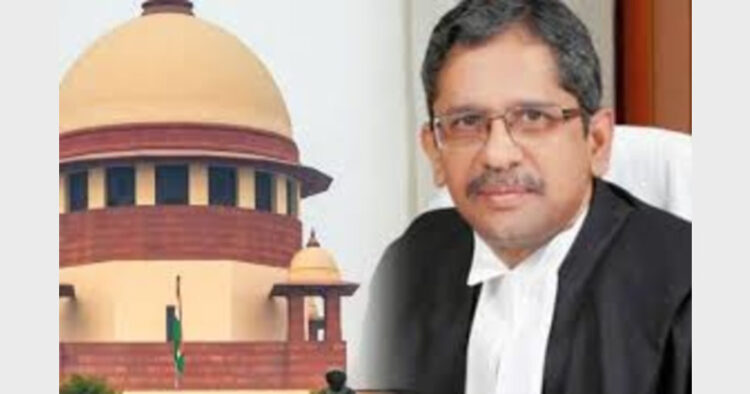Nirendra Dev
New Delhi: Chief Justice of India N. V. Ramana asked the question while hearing a plea from a retired military officer, Major General (retired) S G Vombatkere, who was challenging Section 124 A of the Indian Penal Code, which deals with sedition.
Throwing a frequent challenge to the validity of a law is not a healthy practice, said former Chief Justice of Supreme Court, Retd Justice Ranjan Gogoi, and virtually opposed scrapping the controversial and much debated Sedition law.
"You don't throw out the law, you enforce the law in the manner it should be done. That to my mind is the solution," Mr. Gogoi told Times Now TV in an interview.
Justice Gogoi maintained, the abuse of law is always a "possibility" but asserted, "Why do the laws have to be changed?"
"If the law is misused there are ways and means of remedying the situation," he said it was different from throwing up a challenge to the 'validity' of the law itself.
He said the validity of the law is a "very serious matter, and it is an out of the ordinary matter which should be resorted to in the last instance."
Mr. Gogoi, now a nominated member of Rajya Sabha, also clarified that the Supreme Court repeatedly has said the bonafide criticism of the government or governmental functioning is not sedition.
To a question, he said: "So far chilling effect (of sedition law) on free speech is concerned..nothing prevents a citizen from criticizing the government."
He further said the guidelines on sedition law and its enforcement are clear.
"….From 1962 to 1995 and even 2021 Vinod Dua (case). Go through the judgments the guidelines (on Sedition law) are very clear. Criticism of a government is not sedition. There is a Lakshman Rekha, you need something more than that. The speech must have the effect of inciting people to overthrow a government that is sedition," Justice Gogoi said.
"Three judgments have clearly laid down what are the parameters of the law on sedition," he added.
The Supreme Court of India has posed a question before the Narendra Modi government lately asking, – Is the sedition law still necessary after 75 years of independence?”
Chief Justice of India N. V. Ramana asked the question while hearing a plea from a retired military officer, Major General (retired) S G Vombatkere, who was challenging Section 124 A of the Indian Penal Code, which deals with sedition.
BJP spokesperson Sambit Patra has said as a threat of terrorism still exists, thus – "We do need laws those can act as a deterrent and prevent these forces."





![A Representative image [ANI Photo]](https://organiser.org/wp-content/uploads/2025/12/representative-image-e1765612818961-120x70.webp)







Comments